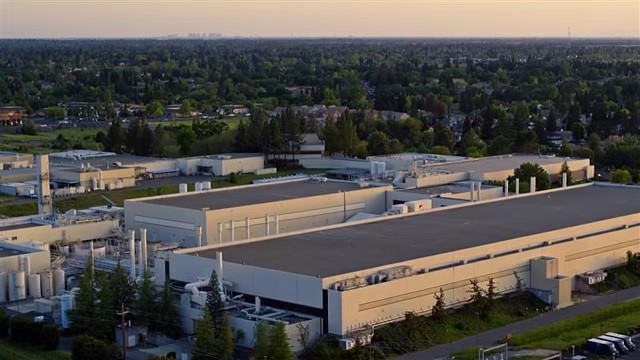Against the backdrop of increasing competition in the global semiconductor industry, the U.S. government recently announced a major subsidy program to provide Bosch with $225 million in direct financial support for its California fab renovation project. This move not only reflects the importance that the U.S. government attaches to the local semiconductor industry, but also marks a major shift in the global semiconductor manufacturing landscape.
Project background and technical details
Bosch plans to convert its 8-inch wafer fab in Rossville, Calif., into a silicon carbide (SiC) production facility, which is expected to start production in 2026. Silicon carbide is a wide bandgap semiconductor material that offers high temperature stability, high breakdown electric field, and high thermal conductivity, making it ideal for high-voltage and high-frequency applications. With a total investment of US$1.9 billion, the project aims to introduce a state-of-the-art silicon carbide production process.
Government subsidies and loans
According to the U.S. Commerce Department's announcement, Bosch will receive about $350 million in government loans in addition to the $225 million in direct subsidies. The funds will support Bosch's renovation program, which is expected to create up to 1,000 jobs. In addition, Bosch plans to apply to the U.S. Treasury Department for an advanced manufacturing investment credit equivalent to 25 percent of the amount of qualified capital expenditures.

Figure: The U.S. government subsidized $225 million to Bosch for the renovation of its fab in California
The strategic significance of silicon carbide chips
Michael Budde, President of Bosch's Mobile Electronics Division, said that the production of silicon carbide chips is a key part of Bosch's strategic plan to strengthen its semiconductor portfolio and support local customers. Silicon carbide chips enable greater range and more efficient charging in battery electric vehicles (BEVs) and plug-in hybrid electric vehicles (PHEVs), providing consumers with a more economical EV option. Although the cost of silicon carbide devices is high, it promotes the reduction of battery costs and the improvement of mileage, reduces the cost of a single vehicle, and is undoubtedly the best choice for new energy vehicles.
Strategic considerations of the U.S. government
The U.S. government's subsidy reflects its determination to remain competitive in the global semiconductor supply chain. By supporting Bosch's transformation project, the U.S. government has not only promoted the development of the domestic semiconductor industry, but also strengthened its position in the global semiconductor market. This move by the U.S. government shows the importance it attaches to the semiconductor industry and its expectation of Bosch's first semiconductor production site in the United States.
Economic and environmental impacts
From an economic perspective, this renovation project will bring significant job growth and economic activity to California. From an environmental point of view, the high efficiency of silicon carbide chips helps to reduce the energy consumption of electric vehicles, thereby reducing carbon emissions.
Industry impact and expert perspectives
Bosch's renovation project is expected to account for more than 40% of the total production capacity of silicon carbide devices in the United States, demonstrating its important position in the U.S. semiconductor industry. The application of silicon carbide can not only significantly improve the energy efficiency and range of electric vehicles, but also reduce weight and cost, and promote the development of electric vehicles in the direction of more efficient and environmentally friendly.
Conclusions and prospects
The U.S. government's subsidy for Bosch's California fab renovation project is not only a support for a single enterprise, but also a strategic investment in the entire semiconductor industry. As the project progresses, it is expected to see significant capacity gains and technological innovations in 2026. The event also heralds the continued leadership of the United States in the global semiconductor industry.
Through the above analysis, we can see that the U.S. government's subsidy for Bosch's California fab renovation project is not only a support for a single enterprise, but also a strategic investment in the entire semiconductor industry. This move will have a profound impact on the position of the United States in the global semiconductor industry.
Data & Provenance
- Details of the subsidy agreement between the U.S. government and Bosch come from the U.S. Department of Commerce's announcement.
- The technical advantages and application fields of silicon carbide chips come from relevant technical literature.
- Project investment and capacity targets are based on Bosch's public statement.






